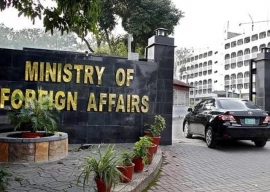
She had thought October 23 would be just like any other evenings when you dress up, wear make up, join your friends and perform in front of an audience that, instead of appreciating you, derives pleasure from mocking you for your being an ‘amusing creature’.
What Karim Bakhsh alias Keeta, a transgender dancer, did not know was that it was not a usual evening.
She was arrested from a dance party at a house in Bahawalpur’s Model Town that night. She was found dead a few hours later.
“The raiding team led by Civil Lines ASI Ashiq Cheema had an argument with one of the dancers. They beat Keeta up and arrested her and her colleagues,” She-Male Association president Shahana Abbas Shani says.
“Keeta succumbed to her injuries a few hours later. The ASI released the other dancers after extorting bribes from them.”
Police deny this. A spokesman for the Bahawalpur RPO said Keeta was injured when she jumped off a police van while the dancers were being taken to the police station.

She was taken to a hospital and treated for her wounds, he says. “She died later after she had reached home.”
ASI Cheema was suspended and an inquiry was launched against him.
Speaking to The Express Tribune on the Transgender Day of Remembrance, Shani said the police had covered up for the ASI and charged him with negligence.
She said the association planned a series of protests to demand justice.
A spokesman for the DPO said the ASI was found to have released the dancers after taking money from them. He has been suspended.
Though authorities claim to have done a lot to protect rights of trans-gender citizens – hermaphrodites, transsexuals, eunuchs and transvestites – employment opportunities for them are limited.
Most, like Keeta, are dancers and their relationship with police is less than amicable.
Shani says dancers like Keeta are often humiliated and abused. “On this day, we must ask ourselves how have things improved since the Supreme Court ordered protection of their rights?”
“It is a matter of conduct,” says Muhammad Aslam Khaki, an Islamic jurist and human rights activist, on whose petition the Supreme Court had ruled that the transgenders were entitled to the same rights as other citizens.
He says focal persons have been appointed to represent the community and help address their issues. He says police, too, have been asked to nominate a focal person in every district and tehsil to look after their security-related issues. Yet, he says, there is still a trust deficit on both sides.
“A policeman is likely to laugh off eunuchs rather than take them seriously,” he says.
“Social attitudes cannot be changed unless pressure groups remind the institutions concerned of their responsibilities.”
Khaki says that while transgender leaders must mobilise their community for the implementation of court orders, it is the civil society’s job to help raise awareness about their plight.
He says most human rights organisations maintain files on rights violation reports.
“Keeping files is not enough. Organisations should recognise trends and develop links on ground so that communities can be mobilised in a crisis,” he said.
Khaki says transgenders are forced to take up dancing or prostitution because most people shy away from employing them. He says initiatives like employing them in beauty parlours and clothing stores would go a long way in integrating them in the society.
Security SP Captain (r) Malik Liaqat says police see no difference in gender.
“Law is the same for everyone – male, female and transgender.” He says police’s attitude towards transgenders has started to soften.
“Policemen are cognisant of the fact they must protect transgenders as much as they care for any other citizen.”
Neeli Rana, a field supervisor of Khawaja Sira Society, says the failure of civil society to mobilise the community stems from the fact that there are very few transgenders willing to take on representative, leadership roles.
“No one can relate to a community more than someone who is one of them… but there are so few who brave the responsibility.”
Rana says after the media hype surrounding the Supreme Court rulings had subsided, transgenders had retreated into their societies, with an apparent win.
“Many did not realise that the hard part had just begun,” she says. “Implementation of court orders and raising awareness on employment of transgenders is the next step,” she says.
In Lahore, Khawaja Sira Society organised a memorial service for transgender victims of violence at the Lahore Press Club on Thursday. As many as 70 people gathered to light candles.
They also chanted slogans, demanding better jobs and ending discrimination against transgenders.
Published in The Express Tribune, November 21st, 2014.




































COMMENTS
Comments are moderated and generally will be posted if they are on-topic and not abusive.
For more information, please see our Comments FAQ